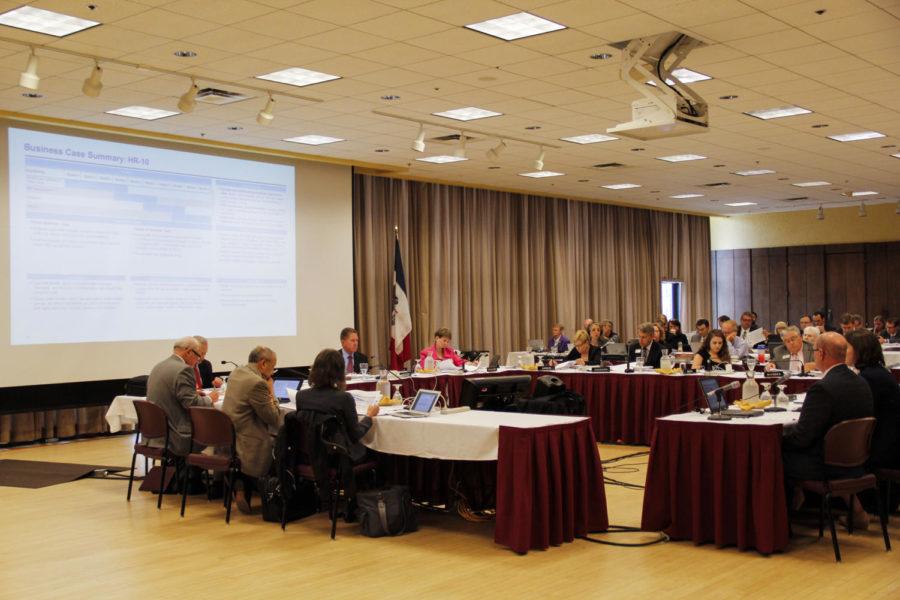Efficiency review reaching final stages
Kelby Wingert/Iowa State Daily
Representatives from Deloitte give an update on the TIER study at the Board of Regents meeting Sept. 10 in the Sun Room of the Memorial Union.
November 3, 2015
The Transparent, Inclusive Efficiency Review, known as TIER, presented its final business cases in October, but full implementation is still years away.
“Implementation on that will be postponed until we get a new enterprising resource planning system,” said Miles Lackey, associate vice president and chief of staff to the president.
Enterprising resource planning systems are types of business-management software used to store and decipher data about aspects of a business, such as payroll, service delivery and other business resources all to promote efficiency. Iowa State is currently in the process of updating its own but that may take a couple of years to complete, Lackey said.
The efficiency review has been in progress since early 2014, and it is nearing the final stages of approval and implementation. The Board of Regents will determine whether it agrees with the findings in the latest academic business cases and from there decide the next step.
As far as implementation on campus, what students and faculty will see change isn’t entirely certain yet. While some steps have begun, many still have to go through the annual budget process, Lackey said. These will start once the academic business cases have been evaluated.
For now, students can expect to see changes in campus technology.
“For example, if you’re walking around, instead of seeing maybe a lot of traditional monitors and towers on people’s desktops, you’ll see the thin client type devices that are very effective, cheaper to use,” said President Steven Leath.
Along with these computers, there are likely to be new phones and purchasing technology available in offices and campus stores. These changes are intended to improve campus while reducing cost.
“As we look particularly at the business cases we want to see services improve to students and faculty, and we want to reduce costs on a per capita basis,” Lackey said.
The next Board of Regents meeting is Dec. 2. Academic business cases will be evaluated and the board will determine whether to follow its suggestions.
“We do have a lot of students, and we want to have as many resources as possible for them,” Leath said. “This is a way we can capture more resources and turn it back into student programs.”

















